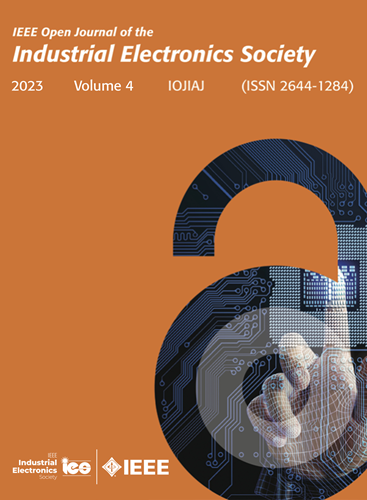A Fractional-Order ADRC With Improved Robustness to Plant Gain Variations
IF 7.2
1区 工程技术
Q1 AUTOMATION & CONTROL SYSTEMS
引用次数: 0
Abstract
This article proposes a fractional-order active disturbance rejection control (ADRC) scheme to enhance robustness against plant gain variations. The scheme integrates a model-aided extended state observer (MESO) and a fractional-order feedback controller. The MESO ensures equivalence to an ideal double-integrator model, while the fractional-order feedback controller, designed based on Bode’s ideal transfer function (BITF), achieves robust performance in the face of plant gain variations. An analytical synthesis method is introduced to ensure that the open-loop system maintains an approximate BITF characteristic near the gain crossover frequency, resulting in a consistent phase margin despite changes in plant gain. Simulation analysis on two different systems demonstrates improved robustness to plant parameter uncertainties using the proposed scheme and tuning method. Extensive experiments conducted on a permanent magnet synchronous motor (PMSM) speed servo system further validate the effectiveness of the proposed scheme, showing significantly enhanced robustness to plant gain variations compared with other control methods. Additionally, the scheme provides superior reference tracking and disturbance rejection performance.一种对增益变化增强鲁棒性的分数阶自抗扰控制器
本文提出了一种分数阶自抗扰控制(ADRC)方案,以增强系统对植物增益变化的鲁棒性。该方案集成了模型辅助扩展状态观测器(MESO)和分数阶反馈控制器。MESO确保等效于理想的双积分器模型,而基于Bode理想传递函数(BITF)设计的分数阶反馈控制器在面对植物增益变化时实现了鲁棒性能。介绍了一种解析合成方法,以确保开环系统在增益交叉频率附近保持近似的BITF特性,从而在器件增益变化的情况下保持一致的相位裕度。对两个不同系统的仿真分析表明,该方案和整定方法提高了系统对对象参数不确定性的鲁棒性。在永磁同步电机(PMSM)速度伺服系统上进行的大量实验进一步验证了该方案的有效性,与其他控制方法相比,该方案对植物增益变化的鲁棒性显著增强。此外,该方案还具有良好的参考跟踪和抗干扰性能。
本文章由计算机程序翻译,如有差异,请以英文原文为准。
求助全文
约1分钟内获得全文
求助全文
来源期刊

IEEE Transactions on Industrial Electronics
工程技术-工程:电子与电气
CiteScore
16.80
自引率
9.10%
发文量
1396
审稿时长
6.3 months
期刊介绍:
Journal Name: IEEE Transactions on Industrial Electronics
Publication Frequency: Monthly
Scope:
The scope of IEEE Transactions on Industrial Electronics encompasses the following areas:
Applications of electronics, controls, and communications in industrial and manufacturing systems and processes.
Power electronics and drive control techniques.
System control and signal processing.
Fault detection and diagnosis.
Power systems.
Instrumentation, measurement, and testing.
Modeling and simulation.
Motion control.
Robotics.
Sensors and actuators.
Implementation of neural networks, fuzzy logic, and artificial intelligence in industrial systems.
Factory automation.
Communication and computer networks.
 求助内容:
求助内容: 应助结果提醒方式:
应助结果提醒方式:


